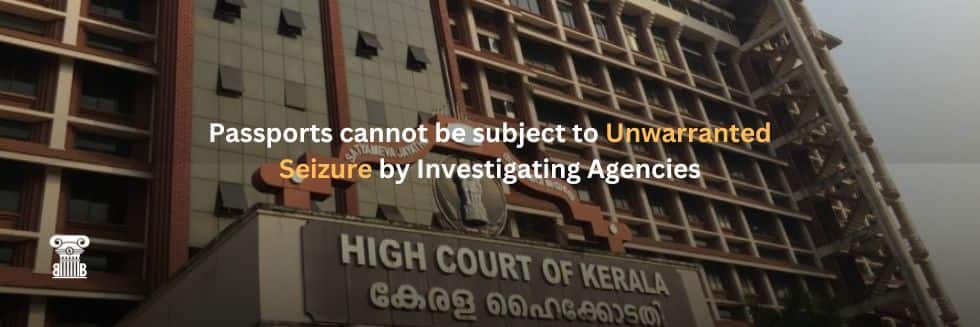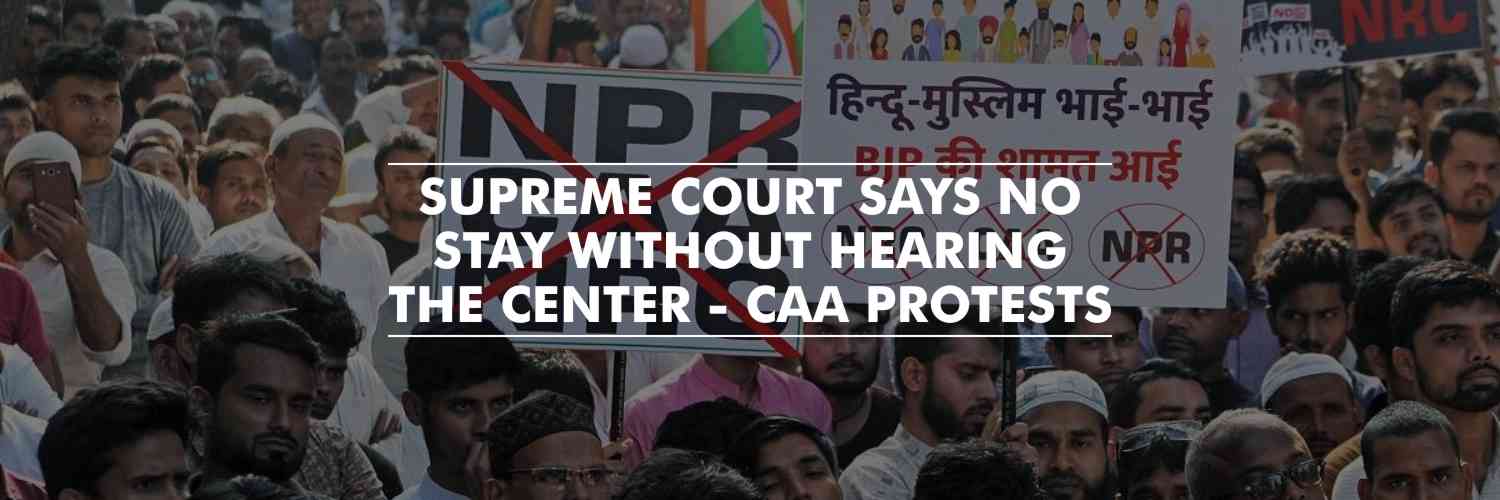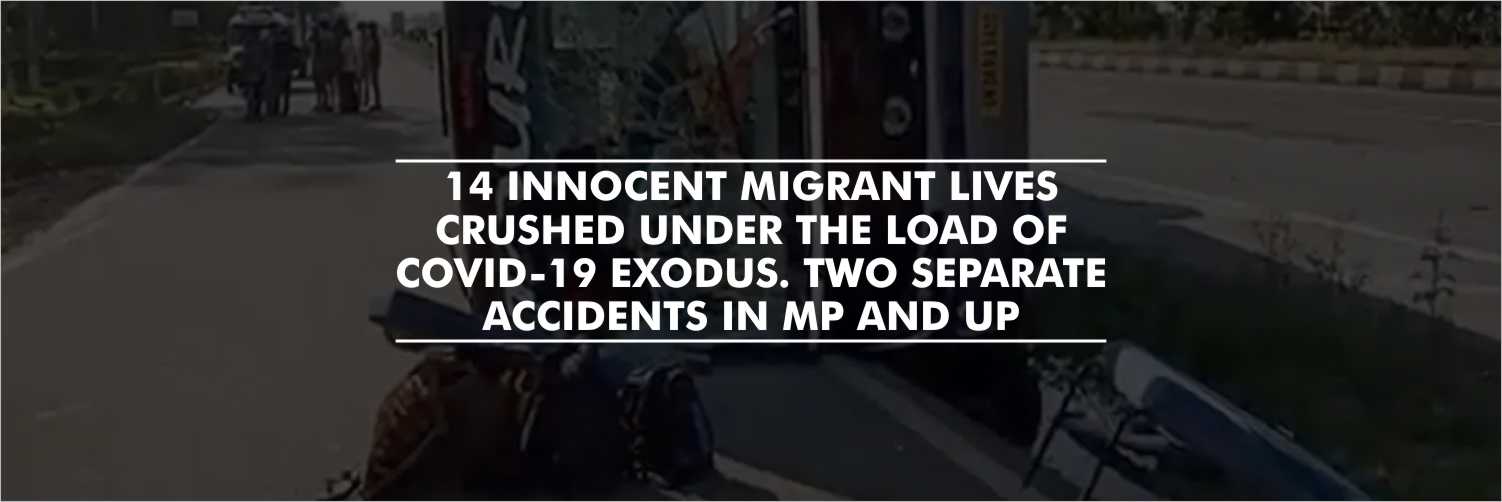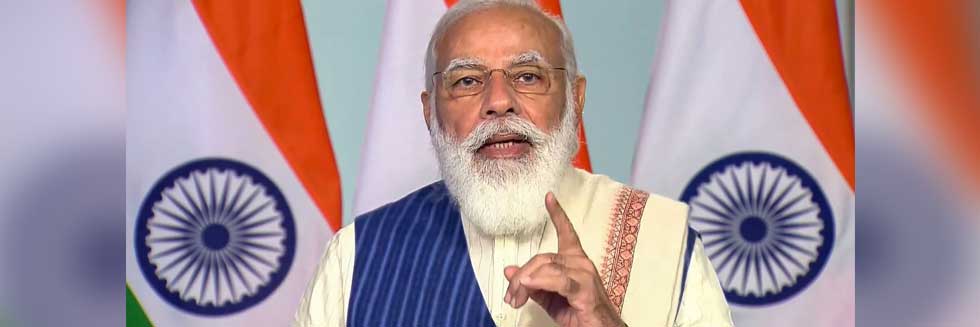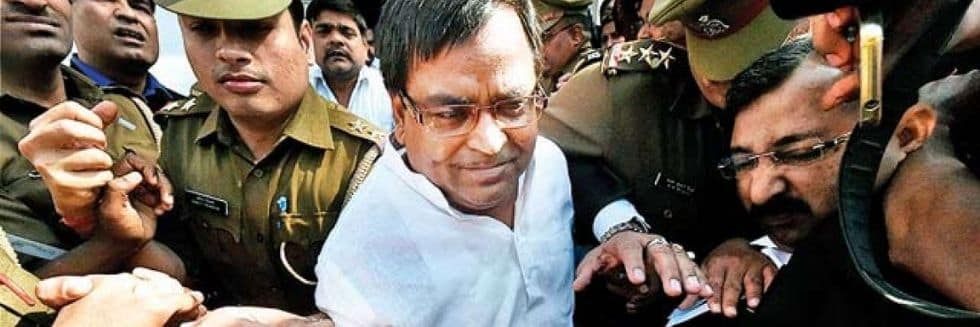In a decisive move safeguarding individual liberties, the Kerala High Court in the case of Davood v. State of Kerala affirmed that passports cannot be subject to unwarranted seizure by investigating agencies. The petitioner returning from Bahrain faced arrest for an alleged drug parcel received in his name. Despite bail, his passport, identity card and mobile were seized. The High Court rejected the prolonged retention citing Suresh Nanda v. CBI emphasizing the legal distinction between seizure and impounding. The verdict prioritizes the petitioner’s rights underscoring the judiciary’s role in protecting personal freedoms against unjust actions by law enforcement.
CASE DETAILS:
Davood v. State of Kerala
Criminal Miscellaneous Case No. 5301 OF 2022
Kerela High Court
Coram: Justice Bechu Kurian Thomas
BACKGROUND:
- On September 12, 2021, a parcel received at a Cargo office in Kochi was allegedly found to contain 3.500 kgs of hashish oil in 8 containers with the consignee’s address and mobile number matching that of the petitioner.
- Despite the petitioner working in Bahrain for the past ten years and returning to India only on March 11, 2022, he was interrogated and arrested on April 2, 2022.
- Subsequently, his passport, identity card issued by the Kingdom of Bahrain and mobile phone were seized.
- The petitioner was released on bail on May 9, 2022.
- He sought the return of his passport, ID card and mobile phone seized during the arrest from the Sessions Court, Ernakulam under section 451 of the Code of Criminal Procedure, 1973.
- However, the court rejected the plea citing a bail condition restricting travel outside Kerala without trial court permission.
- The appellant then approached the High Court under Section 482 CrPC arguing that the seized materials were unrelated to the alleged crime especially the passport.
- The Narcotics Control Bureau opposed citing the need for forensic analysis on the mobile and preventing potential flight from the clutches of law if documents were returned.
OBSERVATIONS:
The High Court observed that the petitioner’s bail order did not include any condition mandating the surrender of his passport to the court or investigating officer. The restriction barring the petitioner from travelling outside Kerala without court permission cannot justify withholding his passport.
In reaching this decision, the Court cited the Supreme Court’s judgment in Suresh Nanda v. CBI which clarified that while the police may have the authority to seize a passport under Section 102(1) of the Code of Criminal Procedure (CrPC) only the Passport Authority under Section 10(3) of the Passports Act, 1967 has the power to impound a passport.
The High Court highlighted the Supreme Court’s distinction between the seizure and impounding of a document. It emphasized that even the court is not authorized to impound a passport under Section 104 of Cr.P.C. as this provision allows the court to impound any document or thing except a passport and the prolonged retention of a passport by investigating agencies would constitute impounding, a practice not sanctioned under the law. This legal interpretation formed the basis for the High Court’s decision to allow the petitioner’s plea for the return of his passport.
Regarding the mobile phone, the Court noted that ample time had passed since its seizure in April 2022 and forensic analysis should have been conducted. The Court further remarked that the petitioner’s identity card held no relevance to the ongoing investigation.
Consequently, the High Court granted the petition instructing the investigating agency to return the passport, mobile phone and identity card to the petitioner.
